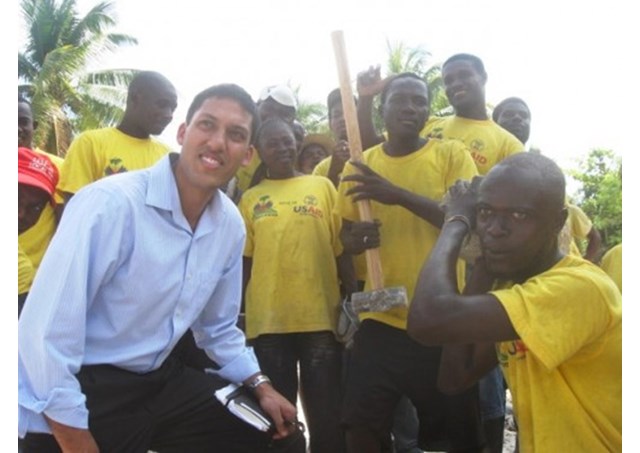
USAID at Vatican Conference on "Investing for the Poor"

(Vatican Radio) Greeting participants at a Vatican Conference entitled “Investing for the Poor” Pope Francis said the world of finance must serve the interests of peoples and the common good of humanity.
The two-day Symposium sponsored by the Pontifical Council of Justice and Peace, Catholic Relief Services and the Mendoza College of Business from the University of Notre Dame, sees the participation of business leaders, financiers, non-profit organizations and social entrepreneurs.
The main focus of the event is “impact” investment, a form of socially responsible investing that aims to generate beneficial social and environmental impact as well as financial return.
In his strong-worded discourse to participants of the Conference the Pope called speculation on food prices a scandal, and he urged Governments to develop an international framework that promotes a market of high impact investments to combat an economy which excludes and discards.
One participant and key-note speaker at the Conference is USAID Administrator, Dr. Rajiv Shah.
Speaking to Vatican Radio’s Linda Bordoni, Shah explained that USAID, which works in more than 70 countries across the globe, is the US Agency for International Development. Its core mission – he says – “is to expand American foreign assistance in a manner that helps to end extreme poverty and suffering, and build resilient democratic societies around the world”.
Shah says the Vatican Symposium is an extraordinary occasion which sees gathered together all sorts of players in the world of finance and ethical business investment.
Listen to the interview…
“The reason we are all here is because Pope Francis has consistently made the point that business investment and public/private partnership should focus on the needs of the world’s poorest people, and if we don’t take it upon ourselves to focus on the poor all around the world, then all of the infrastructure we have built up and the global financial system is not being deployed to one of its core purposes” he said.
To the question “What exactly is impact investing?” Shah expains that “over the last 20 years impact investing has evolved to now represent the fact that there are some investors out there, who are looking to get an economic return for their investment, but also make sure that the funds that they put forward are helping to alleviate poverty and suffering”. The big question – he says: is “can you prioritize both the expectation of returns financially, and the desire to end poverty”. The Pope –Shah points out - was quite clear that we can, and we must”.
Obviously, Shah says the very concept of “impact investing” comes under fire from various quarters, but he invites us to consider the fact that what has actually happened is that “we have really made it a priority at USAID” since the beginning of the Obama administration of finding social entrepreneurs, people who are building small or large business that serve the needs of the poor, and helping them grow” he said.
“We created a Development Innovation Venture Fund which is a venture capital style fund – it makes investments – in business start-ups that are trying to provide energy to families that live in rural Africa and don’t have light for their kids to read at night, or who don’t have low-cost energy to process their agricultural output on their farms” he said. “We are starting to invest in businesses that are starting to provide health services at lower cost specifically to the very poor”.
As long as the world’s poorest people pay the most for things like clean water and basic health services – Shah points out - there will be “an important market opportunity to both bring those costs down and create business that can serve the poor and help them move out of poverty” he said.
Shah says this kind of investment is working although it is still too small and he says that he hopes that this conference will “accelerate the amount of investment that goes specifically from private companies, private financial institutions and private providers and investors of capital to the mission of ending extreme poverty in the next two decades because that is for the first time in history, possible” he said.
Shah speaks about some of the projects USAID is currently promoting and gives figures and details on the amounts spent and on the impact these projects have had in moving people out of poverty and children out of malnutrition.
As regards the Vatican Symposium Shah explains that USAID is the largest international aid agency in the world today and that its “contribution is to focus that investment as much as possible on results-orientated, evidence-based public and private partnerships that can reduce hunger and poverty”.
Shah speaks of how technological advances can contribute to the mission of ending extreme poverty, and of how faith-based organizations are instrumental and essential to this task, also because they are often the most committed to serving the poor.
Finally Shah speaks of the impact Pope Francis’s words on his work: “we work with hundreds of new private sector partners that range from small financial micro-credit organizations on the ground in low income countries, to big banks like J.P. Morgan and others, and across that spectrum, because of the Pope’s teachings and public attention to this issue, I believe more of those partners are seeking the opportunity to work with us to create new instruments that can serve the needs of the poor” he said.
| All the contents on this site are copyrighted ©. |


